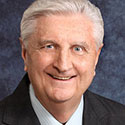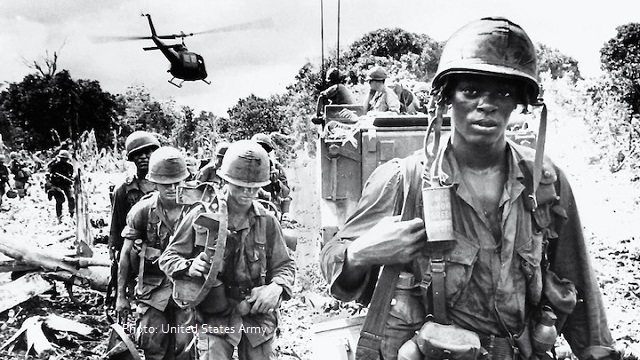Some Subversive Thoughts on Racism
By The Catholic Thing
Msgr. Charles Fink wonders how much of what is deemed racism in our society is really only a matter of feeling more at home among those with whom we are most familiar.
My grandfather was what might be called an old-world gentleman. He dressed in a shirt and tie for work, even into old age when he was running a small family business on his own, at a desk in the unfinished basement of his Bronx home. I don’t remember ever hearing him swear or raise his voice in anger. He was unfailingly courteous and kind but by no means perfect, one of his flaws being a mild form of prejudice that manifested itself in his referring to members of other races with words like “darkies” or “chinks,” usually with an almost embarrassed smile, never derisively. Nevertheless, by contemporary standards, he was a racist.
But here is a fascinating fact about my grandfather. A lifelong practicing Episcopalian, who was a lay preacher in his church in the Bronx, he remained an active member of the congregation as the church’s neighborhood changed and the largely white congregation became predominately black. And when his funeral service was conducted in this church, one after another of the almost entirely black attendees approached me to offer their condolences and to say, “Your grandfather was a real gentleman.”
What to make of this? Does my grandfather deserve to be lumped in with Ku Klux Klansmen? Were all the black congregants of that parish duped by a charlatan and hypocrite? Could it be that because of nature, nurture, and God knows what else, my grandfather had prejudices but, being a Christian and fundamentally decent man, didn’t allow those prejudices to determine his interactions with others?
Before I was a Catholic priest, I served in the military as an infantryman in Vietnam. Two black boys (we were nearly all boys) from Tennessee helped break me in when I reported for duty in my unit. Two months later, wounded in an ambush, I was rescued and evacuated with the help of a strapping, athletic black soldier over six feet tall and a stocky Puerto Rican who threw me over his shoulder and carried me to safety. Color didn’t matter in the field. We were, as the saying goes, “a band of brothers.”
Nevertheless, when we returned to our main base on rare occasions, and were able to get to the enlisted men’s club for some downtime, the blacks and the whites seemed automatically to separate and sit among their own. I’ve found the same pattern repeated as a priest at clergy conference meals. Black priests from all over the world, now serving in our diocese, most often in largely white parishes with white fellow clergy, everyone getting along, gravitate to tables of all black priests.
I asked a wonderful and much-loved priest from Ghana if he thought there was anything racist about this. He laughed and said something like, “Of course not. People just naturally feel comfortable with those most like themselves in race and national origin.”
I wonder how much of what is deemed racism in our society is really only a matter of feeling more at home among those with whom we are most familiar. And even if, as in the case of my grandfather, there is more to it than that, is the bias always so egregious that it deserves to be called out, lumped in with truly hateful bigotry, and the offending person’s character assassinated by being tagged racist or, as has become increasingly prevalent, phobic in one way or another?
If I walk through a high-crime neighborhood, day or night, am I a racist for being more nervous than if I were walking around the block in my parish or hometown? If we replaced our police with Robocops, programming them to be maximally protective of all our neighborhoods, would they be programmed identically irrespective of where they were to patrol? Aren’t we all, in fact, constantly receiving, analyzing, and interpreting data and adjusting our behavior accordingly? Why else do we have intelligence? Isn’t that what something like defensive driving or alertness to our surroundings on a subway platform is all about?
Dr. Jordan Peterson has become both enormously popular and intensely controversial, I believe for much the same reason. He has a keen sense of the subtlety, complexity, and mystery of reality and of human nature in particular and is at pains to help others navigate the often treacherous currents of life so that they may flourish and get along. He is admired by those of us who appreciate his knowledge, wisdom, understanding, and evident compassion. He is despised by those who prefer the simplicity of name-calling and putting everyone into neat little dismissive boxes.
The Peterson path has the potential to lead to a measure of harmony and peace, the other to endless division and antipathy. It shouldn’t take a genius or a saint to judge which is the better course. My grandfather, mildly prejudiced though he was, managed to get along with nearly everyone. All it took was some courtesy and the basic Christian decency that didn’t allow his own natural preferences and prejudices to be the chief determining factor in how he treated others.
Master story-teller and devout Catholic, J.R.R. Tolkien, in a letter to his son, Michael, wrote: “remembering my own sins and follies, [I] realize that men’s hearts are not as often as bad as their acts, and very seldom as bad as their words.”
A little more of Tolkien’s humility and charity would go a long way to healing our broken society and helping us live as neighbors instead of enemies.
AUTHOR
Msgr. Charles Fink
Msgr. Charles Fink (a new contributor) has been a priest for 47 years in the Diocese of Rockville Centre. He is a former pastor and seminary spiritual director, living in retirement from administrative duties at Notre Dame Parish in New Hyde Park, NY.
EDITORS NOTE: This Catholic Thing column is republished with permission. All rights reserved. © 2023 The Catholic Thing. All rights reserved. For reprint rights, write to: info@frinstitute.org. The Catholic Thing is a forum for intelligent Catholic commentary. Opinions expressed by writers are solely their

This article is courtesy of DrRichSwier.com, an online community of citizen journalists, academics, subject matter experts, and activists to express the principles of limited government and personal liberty to the public, to policy makers, and to political activists. Please visit DrRichSwier.com for more great content.


